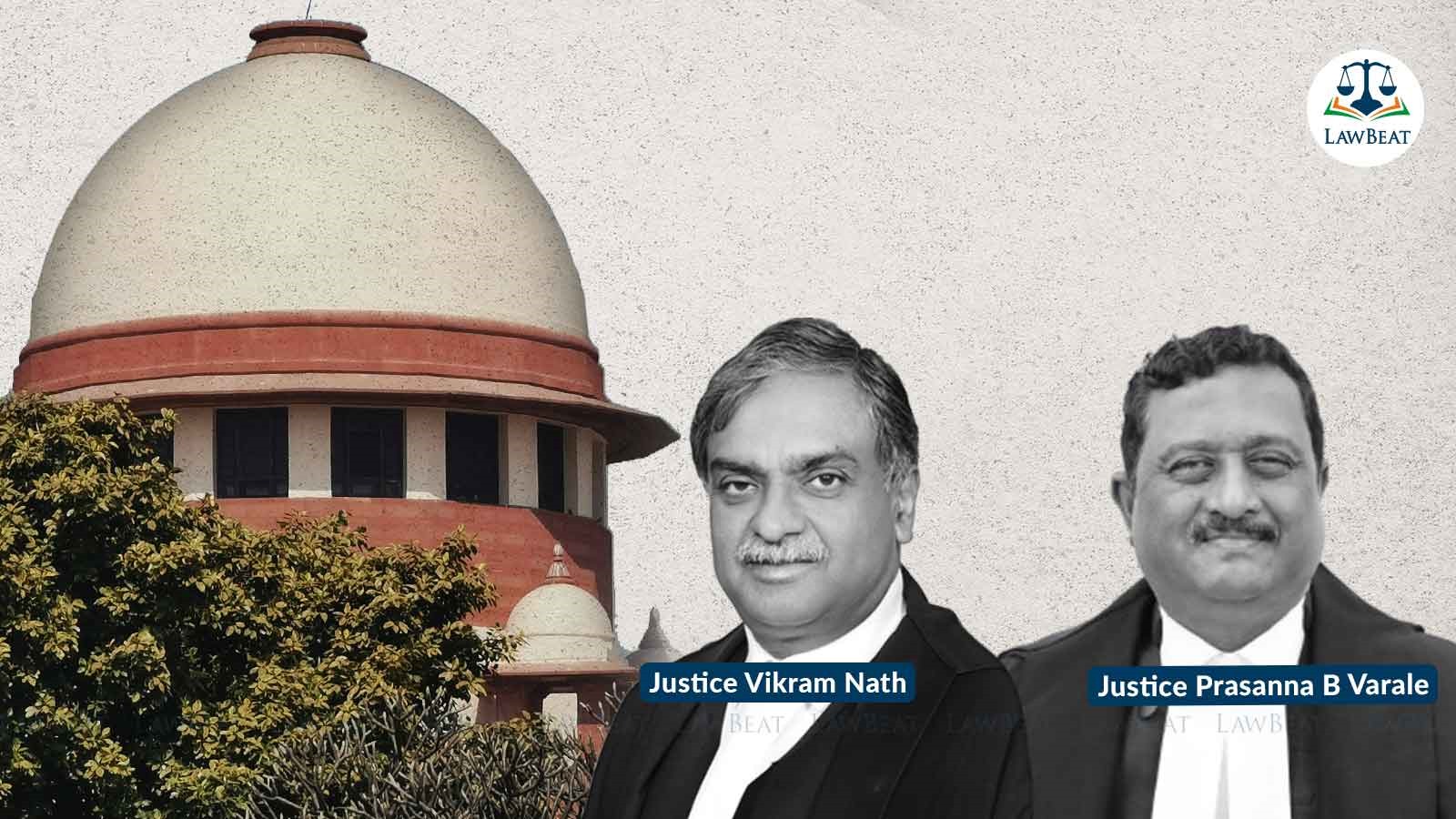If genuineness not disputed, document may be read in evidence without proof: SC

If the authors of such documents do not enter the witness box to prove their signatures, the said documents could still be read in evidence, court said
The Supreme Court on October 21, 2024, said that under Section 294 (3) of the Criminal Procedure Code, where the genuineness of any document is not disputed, such document may be read in evidence in any inquiry, trial or other proceeding without proof of the signature of the person to whom it purports to be signed.
A bench of Justices Vikram Nath and Prasanna B Varale explained that if the authors of such documents do not enter the witness box to prove their signatures, the said documents could still be read in evidence.
"Further, under the proviso, the court has the jurisdiction in its discretion to require such signature to be proved," the court said.
The bench allowed an appeal filed by Shyam Narayan Ram against the Allahabad High Court's order of November 1, 2023, which set aside the conviction of the accused in a 1998 case related to killing of his parents.
The High Court had remanded the matter to the trial court to retry the case afresh from the stage of testimony of prosecution witness no 2.
The trial court, by judgment and order of July 15/16th, 2019 convicted all four accused and sentenced them to life imprisonment under Section 302 IPC and other ancillary sentences for the rest of the offences.
The High Court, by the impugned judgment and order, recorded that the accused did not get a fair trial as their counsel had admitted the documents of the prosecution and had dispensed with its formal proof. This resulted into a serious and fatal illegality and as such in order to extend to the accused a fair trial, it was expedient to remit the matter back to the trial court for further trial.
The appellant's counsel contended if the judgment of the High Court was allowed to stand, it could render the provisions of Section 294 CrPC redundant and otiose. It was also submitted that it was not for any error or oversight of defense counsel that they had admitted the genuineness of the police papers by dispensing formal proof of the same, rather they had repeatedly confirmed their stand of admitting the genuineness of the documents and had opposed the recall of witnesses by the Public Prosecutor on two occasions, once in 2005 and again in 2019.
His counsel submitted that the High Court ought to have decided the appeal on merits on the basis of evidence led during the trial and there was no justification for remanding the matter.
The state counsel supported the stand of the appellant.
The counsel for the accused submitted that considering the principles of fair trial, the top court may not interfere with the impugned judgment and order.
The bench said in the present case, the documents filed by the investigating agency were all public documents duly signed by public servants in their respective capacities either as Investigating Officer or the doctor conducting the autopsy or other police officials preparing the memo of recoveries etc.
As such the trial court had rightly relied upon the same and exhibited them in view of the specific repeated stand taken by the defense in admitting the genuineness of the said documents. In so far as the police papers which had been signed by private persons like the informant, the same had been duly proved, the court noted.
"Thus the only job left for the court was to appreciate, analyse and test the creditworthiness of the evidence led by the prosecution which was available on record and if such evidence beyond reasonable doubt established the charges, the conviction could be recorded. However, if the evidence was not credit-worthy and worthy of reliance, the accused could be given benefit of doubt or clean acquittal," the bench said.
The bench did not find any error in the judgment of the trial court and particularly considering the facts of the present case where the defense repeatedly continued to admit the genuineness of the prosecution documents exempting them from formal proof.
"In our opinion, the High Court fell in error," the bench said.
The court allowed the appeals, set aside the judgment and order of the High Court and restored the criminal appeals before the High Court to be heard and decided afresh on merits on the basis of material on record.
"Considering the fact that the incident is of 1998, we request the High Court to make an endeavour to decide the appeals afresh on the basis of the evidence led during the trial as early as possible," the bench said.
Court also directed the private respondents who stood convicted under the order of the trial court, to surrender within six weeks. It clarified they can apply for suspension of sentence before the High Court on admissible grounds in accordance to law, which would be considered on its own merits.
Case Title: Shyam Narayan Ram Vs State of UP & Anr Etc
